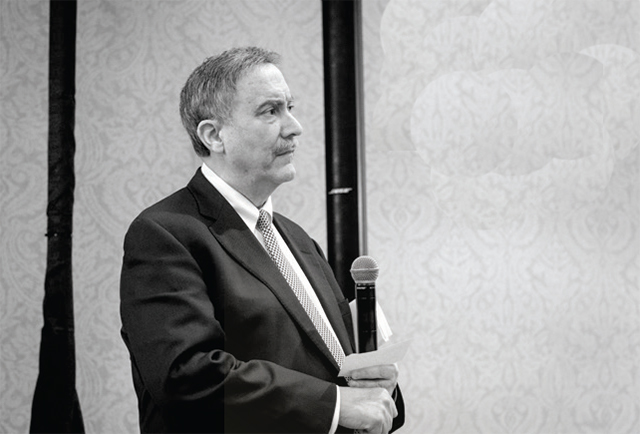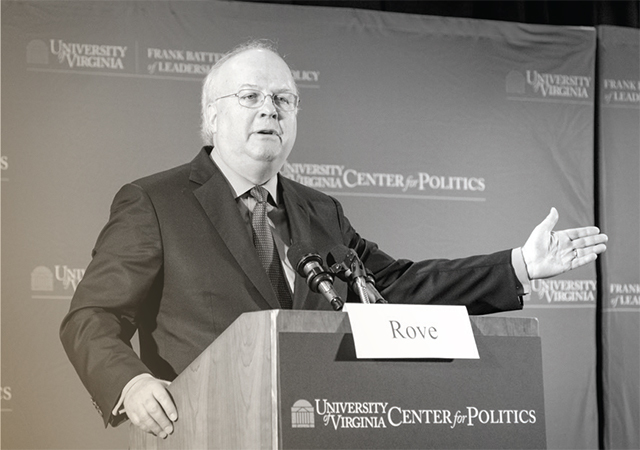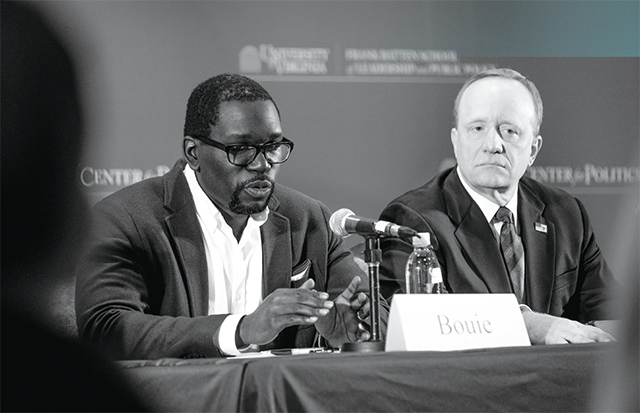David Ramadan misses the days when politicians talked to one another. “We sat there and we argued, but we also talked and got to know each other,” said the former Virginia legislator, speaking before an attentive audience at UVA’s Alumni Hall this winter. “How many members of Congress really know one another? Even within the same caucus, they don’t know one another. They give speeches to an empty room.”
Ramadan served as a panelist at the 20th Annual American Democracy Conference, co-sponsored by the University of Virginia Center for Politics and the Frank Batten School of Leadership and Public Policy. The two-part symposium was held in Washing- ton, D.C., and on Grounds at the University of Virginia, bringing together people from across the political spectrum to discuss the state of American politics at the midpoint of President Trump’s term of office.
“Our political system is not running smoothly and is in need of repair,” said Karl Rove, former deputy chief of staff to President George W. Bush, during his keynote speech at the symposium. “Part of this is fueled by so- cial media, which is making it easier to live in our own virtual communities of like-minded individuals who share our biases and perceptions. We’ve become very comfortable in our own little cocoon.”
Terry McAuliffe, former governor of Virginia and one of the symposium’s keynote speakers, acknowledged that current politi- cal divisions run deep. But they don’t have to isolate us from one another, he said.
“People have differences in views—that’s okay. We shouldn’t always agree. David Ramadan and I had many discussions and we probably disagreed more than we agreed, but we were still friends,” McAuliffe said.
At times of heightened political tension, events such as the symposium help bridge the gaps in understanding between different seg- ments of the community—not just between Democrats and Republicans, but between the political class and the voting public.



